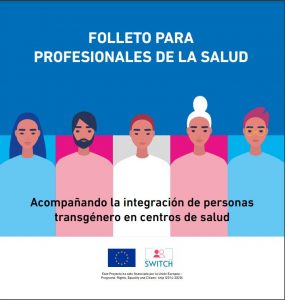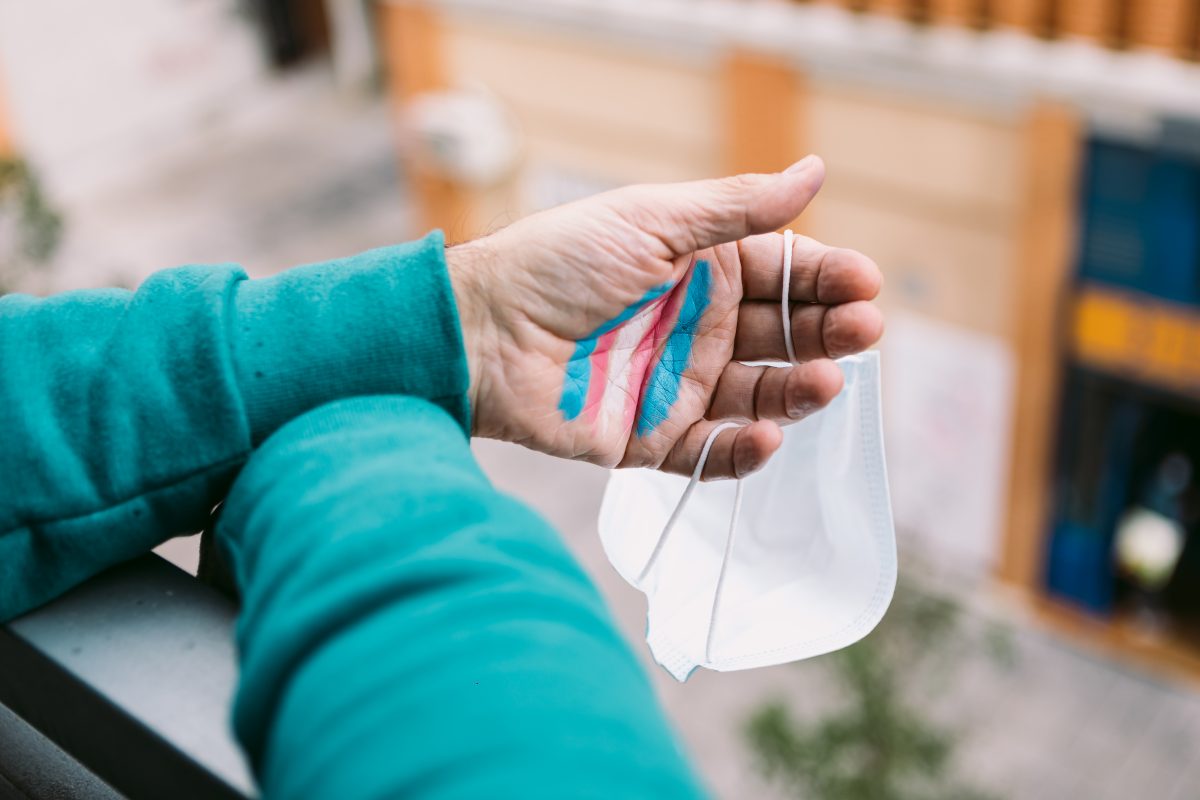- Mireia Córcoles
- No Comments
-
The transgender and intersex community often suffers from stigma or prejudice in health centers that can lead to situations of disrespect or even neglect.
-
I3PT is one of the European partners in the SWITCH project, which aims to reach health professionals and provide them with the knowledge and resources to prevent transphobia.
-
The project, which is about to be completed, has provided various resources aimed at health professionals and spaces for reflection and debate for professionals and the trans community.
Que them transgender and intersex people live situations of lack of understanding, respect or even of transphobia it is a reality that is not only given to the street. Even today they can be found in one health Center. “If they call Maria three times, as she appears in the medical record, and they see a boy getting up, you can already tell that the person has had a traffic; or ask questions related to traffic when it has nothing to do with the reason for the consultation ”are examples of situations that some trans people still experience today, as explained by the psychologist and researcher at the Parc Taulí Research and Innovation Institute (I3PT) Carmen Espelt.
Many transgender, transgender or intersex people suffer from high exposure to discrimination and harassment, which can lead to the onset of mental disorders. Precisely in the face of this reality, the SWITCH project, funded by the European Commission and with the participation of I3PT, seeks to promote services capable of properly assisting trans and intersex people improving the skills of health professionals.
“We have been observing that transgender and intersex people have a lack of knowledge and sometimes a lack of empathy and respect when they go for a medical visit, ”explains Espelt. Faced with this reality, the SWITCH project wants to provide the health professionals with knowledge and resources to properly approach and care for this group and prevent transphobia. "We need to make it easy for them, which is why we have created resources for prosociality, psychoeducation, knowledge and communication for professionals, so that it ends up translating into good treatment for trans people," explains the researcher.
Lack of knowledge may be due to current training in health careers. As he points out Cardoner Narcís, an I3PT researcher, “in the 6 years of medical careers, there have been none until now no gender perspective subject, or any kind of approach ”. "We still have to break down walls, but the current interest gives us hope," says Cardoner. Perhaps one of the main walls that still needs to be broken is the one given by the health system itself, as transsexualism has been listed since 1980 as a mental disorder, according to the International Classifications of Diseases ICD-10 and DSM-IV, and studies epidemiological aspects of transsexualism are scarce or non-existent in most countries, although a In Europe, the incidence is estimated at between 0,14 and 0,26 per 100.000 inhabitants per year, according to collection a study by the Hospital Clínic. [1]
Within the framework of the SWITCH project, various activities have been developed to train health professionals, improve the well-being of trans people, create a network to share knowledge between health centers in different countries, and increase knowledge of health professionals. general public and the health community of the needs of trans and intersex people. 
One of the most prominent actions at the state level has been the organization of a co-creative labs of self-knowledge through image and prosociality applied by LIPA-Local Look—Which has borne fruit in the llibre Transitional Self-Looks [2]-, and the elaboration of a clinical guide for health professionals. This guide aims to answer the questions of health professionals about how to relate to trans and intersex people with the aim of leaving transphobia behind. The work stems from the very questions or unknowns that health professionals asked the project team and which have been answered by transgender people.
The SWITCH project is made up of seven European entities. Also, as Espelt explains, we have also had groups that have helped us a lot, from whom we were able to “soak”, such as Casa Trans, an organization that created the Rosa Admiral, a reference in the subject in Catalonia, or the GAMÁ Collective of the Canary Islands ”. "It is very important to have these groups, as they have all the knowledge to be able to reach the professionals who want to learn." Precisely, some of these groups and different professionals met at the SWITCH Day held last month in Barcelona with the aim of sharing knowledge and experiences, and make an assessment around the project, which is about to end.


"We take a lot of things from the project, especially the landing. Sometimes we want to make big changes and we have to start with the basics, asking basic questions, like knowing how the person who is directing me wants to go or asking them what they need when they go to a consultation, ”explains Espelt , which adds: "Understand that traffic does not always go through hormones or surgery, but perhaps the traffic is to change the name or appearance." "It simply came to our notice then eager to learn from these groups of experts and professionals on how to treat trans and intersex people", Concludes the I3PT researcher.
[1] Gómez Gil, E; Trilla Garcia, A; Godás Sieso, T; Halperin Rabinovich, I; Puig Domingo, M; Vidal Hagemeijer, A; Peri Nogués, JM. (2006). Estimation of the prevalence, incidence and sex ratio of transsexualism in Catalonia according to the demand for care. Actas Esp Psychiatr, 2006; 34(5): 295-302
[2] Banchio, R; Arnaud, I; Red, L .; Escotorin, P. (Coord.) (2022) Transitional Looks. Co-creative lab of self-knowledge with Trans people *. Barcelona: European SWITCH Project.





Leave a Reply